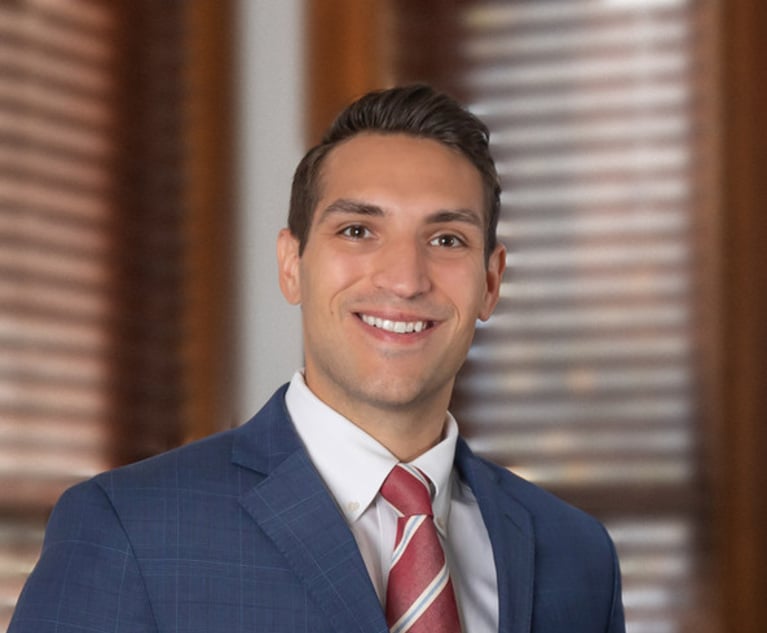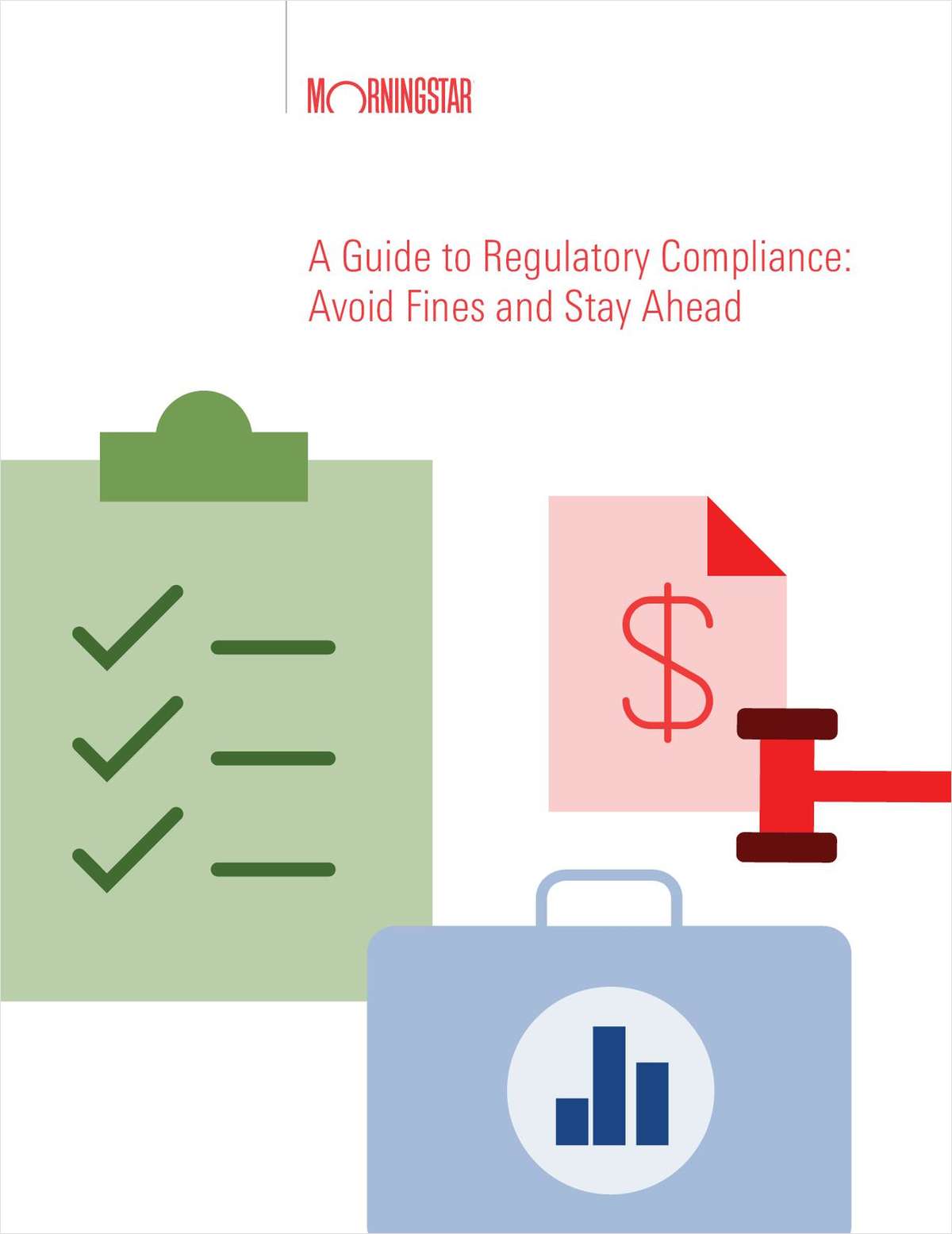 A Connecticut jury Wednesday awarded Jorge Amparo $14.2 million in damages after this Mitsubishi Montero was rear-ended by a tractor trailer in Westport in 2014.
A Connecticut jury Wednesday awarded Jorge Amparo $14.2 million in damages after this Mitsubishi Montero was rear-ended by a tractor trailer in Westport in 2014. Stamford Jury Awards $14.2 Million For Injuries in Tractor-Trailer Wreck
A jury returned the eight-figure award for Diva Amparo and her husband Jorge, who was injured in a crash with Jose Ayala, driver of a tractor-trailer belonging to Evans Delivery Co. Defense attorneys said they are assessing post-verdict options.
May 23, 2019 at 06:31 PM
4 minute read
A Stamford Superior Court jury has awarded $14.2 million to a Pennsylvania man who suffered back and neck injuries after a tractor trailer rear-ended his car on Interstate 95 in Westport in 2014.
The exceptional sum, awarded to 50-year-old Jorge Amparo, is one of the largest vehicular decisions in state history, according to plaintiff counsel Brenden Leydon, a partner with Stamford-based Wocl Leydon.
In addition to awarding Amparo $11.7 million for noneconomic damages and $2.5 million for economic damages, the six-person jury also returned $727,562 for the plaintiff's wife, Diva, for loss and future loss of consortium.
Defendants were Jose Ayala, who drove of the tractor trailer, and his employer Evans Delivery Co., as well as Daniel E. Matos and D. Matos Transport, Inc. They'd made no decision on a potential appeal by press time.
“We are presently assessing post-verdict motions,” defense counsel Gary Kaisen of Branford-based Milano & Wanat said, declining further comment.
The jury rendered its verdict after five and a half days of deliberations in a trial that lasted three weeks and involved testimony from 13 experts—eight for the plaintiff and five for the defense. Both Amparo, who was alone in the car at the time of the crash, and Ayala, who had been in a company truck, testified.
Plaintiff's counsel Leydon said Ayala rear-ended Amparo's car, which was pushed into a third vehicle. Both the tractor trailer and Amparo's Mitsubishi Montero were totaled. Leydon said his client required extrication from the back of his vehicle.
The 50-year-old Amparo, who was wearing a seat belt, sustained numerous injuries, including to his back and neck, his attorney said.
“He could have been paralyzed,” Leydon said.
The parties had a dispute as to whether Amparo had suffered post-concussion syndrome.
“That part of the case was highly contested,” Leydon said. “The defense claimed it was not really post-concussion syndrome because the hospital did not directly diagnose him with that. But our response was the hospital records shows he had dizziness and loss of memory, which is indicative of the syndrome.”
An accident reconstructionist testified Ayala ”should have been going 35 miles per hour in the rainy conditions” and should have left more space between vehicles. The defendant admitted to traveling faster, at 45-50 miles per hour.
In addition, Leydon said, it appeared Ayala was using his cell phone via bluetooth at the time of the accident.
“Phone records show a seven-minute call that Ayala had with his wife at the time of the accident,” Leydon said. “He claimed he hung up long before the accident happened, but that is not what the phone records showed.” It is not illegal in Connecticut to talk via Bluetooth while driving.
Ayala did receive an infraction for driving unreasonably fast for that day's road conditions.
At the time of crash, Amparo was working at a Bridgeport-based water treatment plant.
“Everyone who testified said my client was a fantastic guy. The reason he was commuting 300 miles a day was so his daughter would not have to leave high school in Pennsylvania in her senior year,” Leydon said.
Today, Amparo walks with the aid of a walker. He is also unable to sit for extended periods due to his injuries, Leydon said.
In court documents, the defendants denied Ayala was driving too fast for conditions and that he lost control of the vehicle. They also denied that Ayala was negligent in any way.
If the verdict stands, the trucking company's insurer, American International Group, would likely pay the millions awarded to Amparo and his wife.
Assisting Leydon on the plaintiffs' side was attorney Nicholas Wocl, while co-counsel for the defense was Claire McNamara.
This content has been archived. It is available through our partners, LexisNexis® and Bloomberg Law.
To view this content, please continue to their sites.
Not a Lexis Subscriber?
Subscribe Now
Not a Bloomberg Law Subscriber?
Subscribe Now
NOT FOR REPRINT
© 2025 ALM Global, LLC, All Rights Reserved. Request academic re-use from www.copyright.com. All other uses, submit a request to [email protected]. For more information visit Asset & Logo Licensing.
You Might Like
View All
Second Circuit Upholds $5M Judgment Against Trump in E. Jean Carroll Case
4 minute read

Art of the Settlement: Trump Attorney Reveals Strategy in ABC Lawsuit
Trending Stories
- 1Lessons Learned from the Pager Attack: the Law of War, Warfighting, and the Weaponization of the Supply Chain
- 2Splits Among the Departments: What Might Be Ripe for the Court of Appeals
- 3Recent Developments Section 1782 Litigation and the Attorney-Client Privilege
- 4Biden's Lower Federal Court Bench Legacy
- 5Legal Finance at 15: Research Reveals What’s Fueling Growth and What’s Next
Who Got The Work
Michael G. Bongiorno, Andrew Scott Dulberg and Elizabeth E. Driscoll from Wilmer Cutler Pickering Hale and Dorr have stepped in to represent Symbotic Inc., an A.I.-enabled technology platform that focuses on increasing supply chain efficiency, and other defendants in a pending shareholder derivative lawsuit. The case, filed Oct. 2 in Massachusetts District Court by the Brown Law Firm on behalf of Stephen Austen, accuses certain officers and directors of misleading investors in regard to Symbotic's potential for margin growth by failing to disclose that the company was not equipped to timely deploy its systems or manage expenses through project delays. The case, assigned to U.S. District Judge Nathaniel M. Gorton, is 1:24-cv-12522, Austen v. Cohen et al.
Who Got The Work
Edmund Polubinski and Marie Killmond of Davis Polk & Wardwell have entered appearances for data platform software development company MongoDB and other defendants in a pending shareholder derivative lawsuit. The action, filed Oct. 7 in New York Southern District Court by the Brown Law Firm, accuses the company's directors and/or officers of falsely expressing confidence in the company’s restructuring of its sales incentive plan and downplaying the severity of decreases in its upfront commitments. The case is 1:24-cv-07594, Roy v. Ittycheria et al.
Who Got The Work
Amy O. Bruchs and Kurt F. Ellison of Michael Best & Friedrich have entered appearances for Epic Systems Corp. in a pending employment discrimination lawsuit. The suit was filed Sept. 7 in Wisconsin Western District Court by Levine Eisberner LLC and Siri & Glimstad on behalf of a project manager who claims that he was wrongfully terminated after applying for a religious exemption to the defendant's COVID-19 vaccine mandate. The case, assigned to U.S. Magistrate Judge Anita Marie Boor, is 3:24-cv-00630, Secker, Nathan v. Epic Systems Corporation.
Who Got The Work
David X. Sullivan, Thomas J. Finn and Gregory A. Hall from McCarter & English have entered appearances for Sunrun Installation Services in a pending civil rights lawsuit. The complaint was filed Sept. 4 in Connecticut District Court by attorney Robert M. Berke on behalf of former employee George Edward Steins, who was arrested and charged with employing an unregistered home improvement salesperson. The complaint alleges that had Sunrun informed the Connecticut Department of Consumer Protection that the plaintiff's employment had ended in 2017 and that he no longer held Sunrun's home improvement contractor license, he would not have been hit with charges, which were dismissed in May 2024. The case, assigned to U.S. District Judge Jeffrey A. Meyer, is 3:24-cv-01423, Steins v. Sunrun, Inc. et al.
Who Got The Work
Greenberg Traurig shareholder Joshua L. Raskin has entered an appearance for boohoo.com UK Ltd. in a pending patent infringement lawsuit. The suit, filed Sept. 3 in Texas Eastern District Court by Rozier Hardt McDonough on behalf of Alto Dynamics, asserts five patents related to an online shopping platform. The case, assigned to U.S. District Judge Rodney Gilstrap, is 2:24-cv-00719, Alto Dynamics, LLC v. boohoo.com UK Limited.
Featured Firms
Law Offices of Gary Martin Hays & Associates, P.C.
(470) 294-1674
Law Offices of Mark E. Salomone
(857) 444-6468
Smith & Hassler
(713) 739-1250











